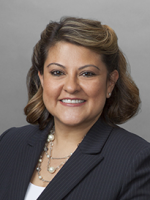The U.S. Department of Homeland Security has proposed amending its regulations on the optional practical training (“OPT”) program to allow international F-1 students with U.S. degrees in the sciences, technology, engineering, or mathematics (“STEM”) — attained from accredited institutions — to extend by 24 months the standard 12-month OPT period available to them to remain in the U.S. to pursue degree-related work experience. This proposal would supersede the 17-month extension currently available to STEM degree holders. In addition, F-1 students may qualify for the extension based on a previously attained U.S. STEM degree from an accredited institution of higher education.
The new proposal responds to a court decision vacating a similar 2008 DHS regulation based on procedural grounds.
The extension comes with some conditions, including increased oversight over the employment of STEM OPT beneficiaries. Employers must be enrolled in the E-Verify employment eligibility verification program. Employers also must implement formal mentoring and training plans, and make certain attestations, similar to those required of other employment-eligible visa categories. An employer must attest that:
(1) the duties, hours, and compensation are commensurate with those applicable to similarly situated U.S. workers;
(2) there are sufficient resources and equipped personnel available to provide appropriate mentoring and training;
(3) there will be no lay-offs or furloughs of any U.S. workers arising from the STEM student’s training;
(4) the opportunity advances the student in attaining his or her training objectives; and
(5) ongoing reporting requirements will be observed.
Additionally, the proposal provides continued Cap-Gap relief. Where an F-1 student is named the beneficiary in a timely filed H-1B cap petition, his or her duration of status (“D/S”) and any current employment authorization/OPT would be extended until October 1st of the fiscal year for which the H-1B visa is being requested.
DHS’s proposed regulations improve the integrity of the STEM OPT program by encouraging students to gain valuable, practical STEM experience, while preventing adverse effects to U.S. workers. By enhancing their functional understanding of how to apply academic knowledge in a work setting, students will be better qualified to embark on careers in their respective fields of study. These on-the-job experiences would be obtainable only with employers committed to developing students’ knowledge and skills through practical application. Moreover, the proposed rules aim to maintain our competitive edge in attracting international STEM students to study and lawfully remain in the United States.
The U.S. Chamber of Commerce is preparing comments to DHS on this proposed rule. It has helped organize a confidential survey intended to gauge the importance of the proposed rule on companies that hire individuals who are international F-1 graduates of U.S. universities with STEM degrees and has invited employers to participate in the survey.






 />i
/>i
